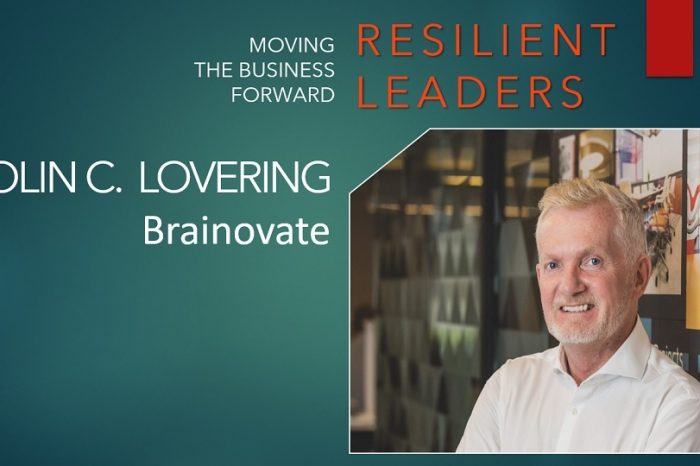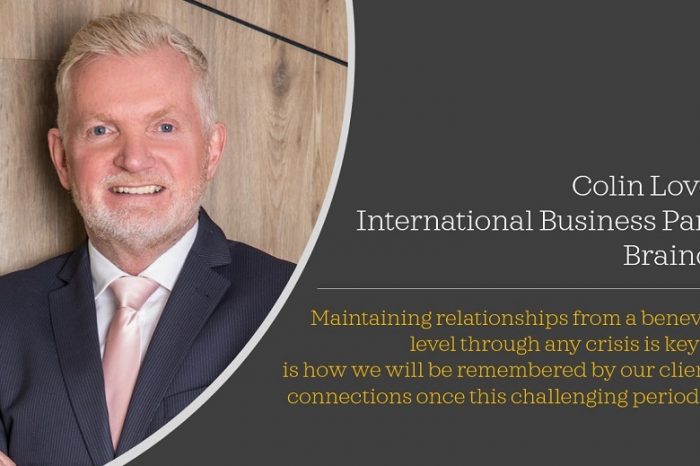Getting to the heart of building a healthy emotional workplace culture

With remote Leadership and the challenges of healthy communication in the Outsourcing and Business Services industry, Emotional Intelligence has floated to the top of essential skills that leaders require in the ever changing business world here in Romania. Colin Lovering sat down with Alina Banescu from EI Romania/Brainovate to find out more.
Firstly Alina, What is an EI workplace culture?
Let’s start with defining Emotional Intelligence. Goleman defines EI as being intelligent about emotions. More specifically, it’s about being able to recognize emotions (ours and other people’s) and make smart choices in using these emotions for better outcomes.
Emotional Intelligence is what I feel makes us human. The fact is that the nature of being human means that we all have a level of emotional intelligence which is more or less obvious in our daily lives. Work therefore is an emotional arena (as defined by Stephen Fineman in his book Understanding Emotion at Work).
In terms of defining Emotional Culture, it simply yet broadly refers to the overall culture that the workplace fosters and encourages in terms of emotions, attitudes, and values. It blends with the cognitive and behavioural cultures in organisations, yet some argue that is more important than the other aspects of workplace culture. Yet despite this perception, studies at Wharton University reveal that it is the least addressed by businesses worldwide.
So, what should we expect when looking at a company’s EI culture?
For starters we need to acknowledge that every company has an EI culture. It can be a healthy one or unhealthy, open or supressed, formal or informal, but every single company has an EI culture. The difference is in the type of EI culture you have knowingly or unknowingly nurtured and the effects of it in the mid to long term.
Healthy emotional cultures are those that allow for and welcome emotions and their expression in an authentic, constructive way. As a result, people feel supported and valued at all organisational levels. A study conducted by London school of Business, found that in such workplaces, people feel comfortable expressing their feelings, they tend to be more productive, reliable, creative and
Unhealthy emotional cultures are those that supress the display of emotions or are sometimes running as a fear culture. As a result, people are stressed, anxious and overall unproductive, they feel mistreated, devalued and demotivated, they don’t engage and are keener to take a way out when the opportunity presents itself.
As an EI assessment centre, we use a global tool that we offer free of charge to companies in Romania in order to provide them with a starting point in evaluating and calibrating their emotional culture – a snapshot of the reality of how people feel in the workplace vs the ideal and expected scenarios. There’s no such thing as the right place or time to start developing your company’s emotional culture. It’s been growing ever since you’ve started the business. It’s always the right time to consciously evolve and nurture it in the right direction.
But, where do you begin to develop an EI culture? Is it through an assessment?
Actually, anywhere. It can be through conversations with your colleagues, through feedback or take the pulse sessions, through an assessment, through hiring people with high demonstrated levels of EI, through consciously engaging in coaching, training or mentoring on issues related to EI (empathy, relationship building, trust, resilience, etc.) Once you realise you need to start talking about emotions and acting upon them in a constructive way, you’re consciously starting to look at developing the EI culture, as a way of being and doing things around here, as a collection of shared values, attitudes, emotions, feelings, drive and energy.
Sometimes it’s important to make that intentional decision to start working on your emotional culture. Whatever comes easier (not necessarily easier from an emotional perspective, but easy in terms of execution). Once you start you can explore, revise, adapt and learn on the best way to shape and sustain an EI culture in your teams and companies.
And how do you develop it?
Formally, assessments certainly have a role here – from hiring people with high EI demonstration, to developing EI at all organisational levels. Integrating EI in the leadership culture, in the wellbeing culture, in the coaching and feedback culture. Having regular “lean-in” type coffee meetings, openly and authentically sharing and discussing emotions with the aim to learn from them.
Listen more, cultivate kindness and care, find the good in others, intentionally connect with others, ask questions.
Ask yourselves: How do people “show up” at work? How do you “show up” at work? How does this impact the working culture?; What feelings are regularly expressed at work?; What feelings aren’t?; What occupies people’s mind? What needs to happen now?
You mentioned something interesting – how you “show up” at work. Why is this important and how is it important?
A simple way of looking at it is – you can be the most emotionally intelligent person in the whole world, yet if you don’t leave your house, don’t talk to anyone, don’t engage in any EI activities, what difference does it make? We have an impact on ourselves and others through our constant behavioural choices – in other words how we demonstrate EI every day, with every person.
The way we show up impacts how we make others feel, which in turn impacts their behaviours, thoughts decisions at work. All of these have a knock down effect on overall business performance and results.
To exemplify this – just as an exercise – think about 3 of the most important people in your lives right now. Write their names down on a piece of paper and draw a large circle around their names. These are your relationship circles.
Within the circle write (from what you know and your own understanding of this person and your relationship with them) what are their expectations of you when it comes to how you demonstrate your EI (self-awareness, authenticity, self-management, positive influence, awareness of others and emotional reasoning).
Outside the circle write where you think you excel in demonstrating these behaviours and meeting their expectations and where there’s still a gap. Once you become clear of what it is you could be working on to make these relationships stronger and to have a better, more meaningful impact, think of one small thing you can start doing right away and act upon it. Every week think of another small thing and act upon it. Look for feedback and keep building until you’ve reached the level that satisfies you.
I’m sure this gets everyone thinking. I can see this exercise applied at work as well, with your boss, colleagues, clients. What other simple things could people do to take stock and start developing their emotional intelligence at work?
Indeed, the same exercise can be used in the professional environment.
At a leadership level and company-wide level, there are so many things you can do to make a difference to your company’s emotional culture. If currently there is no consistent and consolidated effort to define and develop a healthy emotional culture in place start talking to stakeholders and a diverse pool of colleagues to make sense of the current working reality.
Assess how people are feeling, look deeper at how your values are lived and experienced every day. Define the core of your emotional culture and regularly check-in that it’s alive and well. Regularly look for different ways to develop this further. And when there are barriers in place, address them as a priority and manage them while demonstrating high levels of emotional intelligence.
On an individual level, being mindful and looking at increasing your self-awareness is an essential point. Cultivating energy and positivism early in a conversation (that doesn’t mean ignoring or not expressing the less pleasant feelings). Thinking of how you can make yourself and others feel good during a conversation, paying attention, showing interest and complimenting people for something specific that they have done – notice those around you. Allow yourself to let go of things and give yourself permission to make mistakes and to learn from them, to be imperfect. And very important, be kind to yourself and others.
Outsourcing Today readers can enjoy a 50% discount offered for 2 weeks for the Genos Certification. Contact: alina@eiromania.com or find out more at www.eiromania.com
















